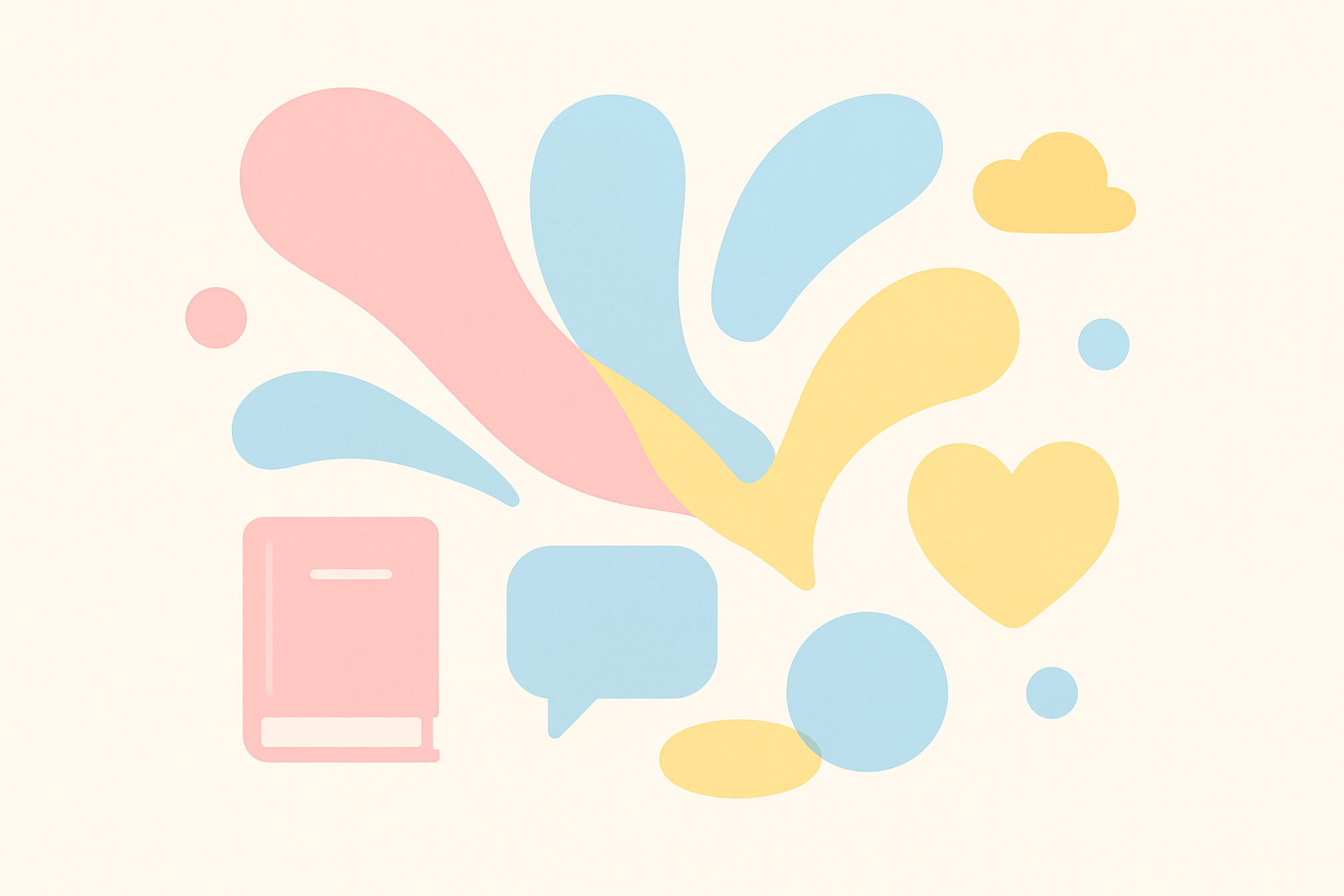Essential Chinese Adjectives for Beginners
Learning to describe the world around you is one of the most useful skills when starting with a new language! In this lesson, you'll learn common Chinese adjectives that will help you talk about sizes, qualities, and feelings in your everyday Mandarin conversations.
Understanding Size and Quantity in Chinese
Let's start with some simple adjectives to describe how big or small things are:
Basic Size Words
大big, large means "big" or "large" - this is one of the first and most useful Chinese adjectives! For example: 这个苹果很大This apple is very big (This apple is big).
小small, little means "small" or "little" - the opposite of 大big, large, perfect for describing smaller things. For example: 那个房间很小 (That room is small).
Quantity Words
多many, much means "many" or "much" - use this when talking about having a lot of something. For example: 我有很多书 (I have many books).
少few, little means "few" or "little amount" - the opposite of 多many, much, for talking about small quantities. For example: 他有很少朋友 (He has few friends).
Length Words
长long means "long" - perfect for describing things with greater length. For example: 这条路很长 (This road is long).
短short, brief means "short" - the opposite of 长long, for describing things with less length. For example: 我的头发很短 (My hair is short).
Quality and Appearance Words in Mandarin
Now let's learn some adjectives to describe how things look or their quality:
好good, well, okay means "good" - probably the most common adjective in Chinese! For example: 这个电影很好 (This movie is good).
坏bad, broken means "bad" - the opposite of 好good, well, okay, for negative descriptions. For example: 这个苹果坏了 (This apple is bad/rotten).
漂亮beautiful, pretty means "pretty" or "beautiful" - great for complimenting appearances. For example: 那朵花很漂亮 (That flower is beautiful).
干净clean, tidy means "clean" - useful for describing cleanliness. For example: 我的房间很干净 (My room is clean).
Expressing Feelings in Chinese
Here are some helpful adjectives to talk about how you or others feel:
高兴happy, glad means "happy" - perfect for expressing positive emotions. For example: 我今天很高兴 (I am happy today).
累tired means "tired" - useful after a long day! For example: 他工作后很累 (He is tired after work).
忙busy means "busy" - great for describing your schedule. For example: 我明天很忙 (I am busy tomorrow).
Weather and Temperature Words
These common adjectives help you talk about the weather in Mandarin:
热hot means "hot" - useful during summer months! For example: 今天很热 (Today is hot).
冷cold means "cold" - perfect for winter descriptions. For example: 冬天很冷 (Winter is cold).
Other Useful Quality Adjectives
Let's finish with a few more helpful descriptive words:
新new means "new" - for describing recent or fresh things. For example: 这是一本新书 (This is a new book).
贵expensive means "expensive" - helpful when shopping or discussing prices. For example: 这个手机太贵了 (This phone is too expensive).
便宜cheap means "cheap" or "inexpensive" - the opposite of 贵expensive. For example: 那个包很便宜 (That bag is cheap).
Using Adjectives in Chinese Sentences
Unlike English, Chinese doesn't need a verb like "is" between the subject and adjective. Instead, you'll often use these helpful modifier words:
The 很 (hěn) Pattern
很very, quite technically means "very," but in simple statements, it's just used naturally before adjectives without emphasizing "very":
- 天气很好 (The weather is good)
- 我妈妈很漂亮 (My mother is beautiful)
- 这本书很有意思 (This book is interesting)
The 太 (tài) Pattern
太too, extremely means "too" and expresses excess - often followed by 了completed action marker at the end:
- 这个太贵了 (This is too expensive)
- 今天太热了 (Today is too hot)
Simple Conversations with Chinese Adjectives
Try these easy dialogues to practice using adjectives in everyday Mandarin:
Dialogue 1: Shopping
Dialogue 2: Weather Talk
Dialogue 3: Making Plans
Learning Tips for Chinese Adjectives
- Practice in pairs - Learn opposites together (大big, large/小small, little, 热hot/冷cold) to help remember both
- Use adjectives daily - Try describing things around you using these new words
- Listen for patterns - Notice how 很very, quite is used naturally in Chinese sentences
- Create simple sentences - Start with "这个很... (This is...) for easy practice
- Use flashcards - Make cards with pictures that match each adjective
Summary
In this lesson, you've learned 20 essential Chinese adjectives that will help you describe the world around you in Mandarin. You now know words for size, appearance, feelings, and qualities, plus the basic pattern for using adjectives with 很very, quite and 太too, extremely.
With these adjectives, you can now describe objects, people, weather, and feelings in simple Chinese conversations! Keep practicing these words in different contexts, and soon they'll become a natural part of your Mandarin vocabulary.
